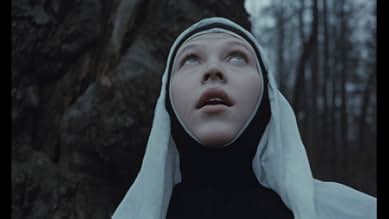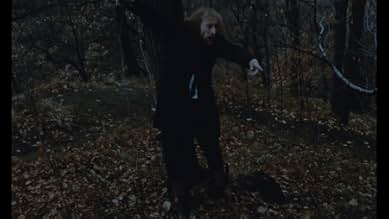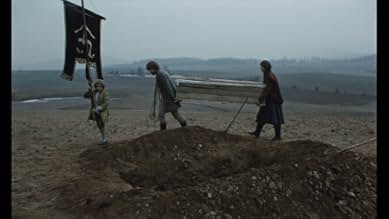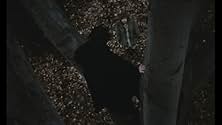IMDb RATING
7.0/10
3.3K
YOUR RATING
Young Polish noble Jakub, freed during 1793 Prussian invasion, experiences father's death, betrayal. Traumatized, he follows his savior, committing brutal murders across the country.Young Polish noble Jakub, freed during 1793 Prussian invasion, experiences father's death, betrayal. Traumatized, he follows his savior, committing brutal murders across the country.Young Polish noble Jakub, freed during 1793 Prussian invasion, experiences father's death, betrayal. Traumatized, he follows his savior, committing brutal murders across the country.
- Director
- Writer
- Stars
- Director
- Writer
- All cast & crew
- Production, box office & more at IMDbPro
Featured reviews
The previous poster calls the cruelty at display in this film "inhuman". Oh really? How come then that people slaughter people, gouge their eyes out, cut their limbs or burn them alive? Or torture them? Or rape and mutilate women? He should read some reports about practices during the Bosnian war or wars in Africa, about the stuff people have been doing to other people for ages, for reasons like religion, greed or lust. Or for no reasons at all. It took real "balls" or creative guts from the filmmaker to do a film like that. I am fed up with the political correctness and general blandness of films, caused by the requirements of market and profits, or by mere cowardliness. I could understand criticism of the cruelty if it was purely gratuitous but it is not. This film has artistic values and touches upon important topics. I am happy it was not destroyed and all copies not locked up somewhere. It could probably happen in Hollywood or in the lands like Iran.
During the joint Russian,German (Prussian) and Austrian invasion to Poland in 1793, a young Polish nobleman Jacob is saved from the imprisonment by a stranger who wants in return to obtain a list of Jacob's fellow conspirators. It is a bargain. Maybe implicitly, Jakub sold his life to this stranger, following his mysterious savior across the country, Jacob becomes a witness to chaos and moral corruption that is ensuing the partition and dissolution of Poland by the neighbor countries. People everywhere seems to gone mad and crazy, including Jacob's own family and his beloved girlfriend.
Being apparently demented by what he has seen, he, amidst his own delerium of his consciousness fading away, commits noumerus of gory and enigmatic killings derailing in social and political turmoil by mass murders, leading to insanity and desperation. This stranger, who acts as a guide, displays horrific sights of this physically and morally destroyed 18th-Century nation, whispering the actions of Jakub and acting as an evil motor. But there is free will in Jakub as well, which remains unquestionable.
The film was immediately banned by the censors of the then-communist Polish government and the director was soon forced to leave Poland. Almost two decades later, in the last days of communism in Poland, Zulawski have somehow obtained a copy of his film from censorship vaults and immediately presented it during nearest film festival in Tokyo in 1988. Albeit very late, the film premiere has had received a lot of applause from viewers and film critics alike.
Zulawski's invigorating style shines as brightly as ever, his vision of insanity displayed at every corner, its a world fueled by animal instincts and sexual deviance, permeated with enough filth to make the devil dance in joy. Where each frame is filled with details that are caught by the eye either consciously or subconsciously. Camera management is aggressive and intrepid, never giving up, never hesitating to the depiction of scandalous content, shifting tones and creating authentic psychological horror with remarkable success.
It is as ugly as it is mesmerizing. Andrzej Zulawski's cinema is the definition of madness, the real meaning of insanity, and the truth of the quest of craziness. This film Diabel is flawlessly made, perfectly filmed, completely insane, profoundly depicted. With the typical emotional attacks of anger and madness expressed by the various characters. He represents an absolute and incontrovertible chaos, subjecting the vision to a frenetic and frustrating horror. In Diabel, Zulawski seems to point out we should stop worrying about the Devil since it is already Hell on Earth...
Being apparently demented by what he has seen, he, amidst his own delerium of his consciousness fading away, commits noumerus of gory and enigmatic killings derailing in social and political turmoil by mass murders, leading to insanity and desperation. This stranger, who acts as a guide, displays horrific sights of this physically and morally destroyed 18th-Century nation, whispering the actions of Jakub and acting as an evil motor. But there is free will in Jakub as well, which remains unquestionable.
The film was immediately banned by the censors of the then-communist Polish government and the director was soon forced to leave Poland. Almost two decades later, in the last days of communism in Poland, Zulawski have somehow obtained a copy of his film from censorship vaults and immediately presented it during nearest film festival in Tokyo in 1988. Albeit very late, the film premiere has had received a lot of applause from viewers and film critics alike.
Zulawski's invigorating style shines as brightly as ever, his vision of insanity displayed at every corner, its a world fueled by animal instincts and sexual deviance, permeated with enough filth to make the devil dance in joy. Where each frame is filled with details that are caught by the eye either consciously or subconsciously. Camera management is aggressive and intrepid, never giving up, never hesitating to the depiction of scandalous content, shifting tones and creating authentic psychological horror with remarkable success.
It is as ugly as it is mesmerizing. Andrzej Zulawski's cinema is the definition of madness, the real meaning of insanity, and the truth of the quest of craziness. This film Diabel is flawlessly made, perfectly filmed, completely insane, profoundly depicted. With the typical emotional attacks of anger and madness expressed by the various characters. He represents an absolute and incontrovertible chaos, subjecting the vision to a frenetic and frustrating horror. In Diabel, Zulawski seems to point out we should stop worrying about the Devil since it is already Hell on Earth...
Well, i went into this completely blind. Had no clue this movie existed. I can tell you that this movie is really hard to follow. I wanted to watch this with subs from my country, but sadly i found it only with English subs, so it was really, REALLY hard to follow. But what i followed was pretty good.
This movie never got boring, maybe a tiny bit, but for the most part it's really sharp. I can tell you that the movie has a clear message: A King that's being influenced with God and Evil. The King (who was said to be mentally ill at times, not 100% sure bout that), only followed the Diabel, while the Nun the Good, he just ignored her, and she was there for nothing.
This movie depicts in a very brutal, way how it is to be forgotten. This King has been sentenced to death, and when he escaped, nobody really cared for him: His wife re-married, his mother is a prostitute, his sister barely cared, it's like when you get locked up for such a long time, when people forget about you, they just dont care anymore.
Also, what we forget, is how many people have been killed because of the Diabel, even though these people did not care, the King killed people that nothing to do with being forgotten, like the Turkish woman, and the other actor... He killed people that had nothing to do with this, and then he Diablo forced him into self destruction, untill in the end, when the Devil shows it's true face.
This is an amazing movie, i actually wanted to give it 10/10, but it's just too difficult to follow. I think this movie was inspired based on 1971 The Devils, they seem kinda similar, and i loved 1971 The Devils, this is kinda in the same boat. I think this is the first movie ive seen from Poland, and it's worth watching.
I enjoyed what was served, even though i think i didn't pick up on a lot of what was being said, but still pretty well made movie for what it is. A lot of people are complaining over bad acting, and bad "directing". No, to everything seemed to work pretty well. And as i say 100 times, the MOST important thing when it comes to movies, is the plot, this had a strong plot, and i enjoyed it.
This movie never got boring, maybe a tiny bit, but for the most part it's really sharp. I can tell you that the movie has a clear message: A King that's being influenced with God and Evil. The King (who was said to be mentally ill at times, not 100% sure bout that), only followed the Diabel, while the Nun the Good, he just ignored her, and she was there for nothing.
This movie depicts in a very brutal, way how it is to be forgotten. This King has been sentenced to death, and when he escaped, nobody really cared for him: His wife re-married, his mother is a prostitute, his sister barely cared, it's like when you get locked up for such a long time, when people forget about you, they just dont care anymore.
Also, what we forget, is how many people have been killed because of the Diabel, even though these people did not care, the King killed people that nothing to do with being forgotten, like the Turkish woman, and the other actor... He killed people that had nothing to do with this, and then he Diablo forced him into self destruction, untill in the end, when the Devil shows it's true face.
This is an amazing movie, i actually wanted to give it 10/10, but it's just too difficult to follow. I think this movie was inspired based on 1971 The Devils, they seem kinda similar, and i loved 1971 The Devils, this is kinda in the same boat. I think this is the first movie ive seen from Poland, and it's worth watching.
I enjoyed what was served, even though i think i didn't pick up on a lot of what was being said, but still pretty well made movie for what it is. A lot of people are complaining over bad acting, and bad "directing". No, to everything seemed to work pretty well. And as i say 100 times, the MOST important thing when it comes to movies, is the plot, this had a strong plot, and i enjoyed it.
Depravity, violence, a world permanently tipped off balance.
Near the end our halfmad protagonist asks someone else if he sees the world ugly because of his illness or because it is. The other replies that the world is filled with beauty, flowers, fruit, women, then reasons that he cannot adequately describe it. Instead he will dance about it.
His dance is not beautiful though, it's a wild spasmodic flailing of arms like we're seeing an epileptic suffer a seizure.
Diabel is that dance.
Superficially an allegory on how revolutions become mired in distraction - the political hedonism of power? - and how Poland has been used and abused by so many, deeper we find the same frightful pantomime that made Possession such a terrifying beast: inner soul made visible.
Slight problem is that he does not abstract enough to hit that bedrock were every image becomes multi-layered utterance of different cosmii. Characters remain pieces of the allegoric jigsaw, pawns in a game. There is not enough emptiness from life to pour into.
Near the end our halfmad protagonist asks someone else if he sees the world ugly because of his illness or because it is. The other replies that the world is filled with beauty, flowers, fruit, women, then reasons that he cannot adequately describe it. Instead he will dance about it.
His dance is not beautiful though, it's a wild spasmodic flailing of arms like we're seeing an epileptic suffer a seizure.
Diabel is that dance.
Superficially an allegory on how revolutions become mired in distraction - the political hedonism of power? - and how Poland has been used and abused by so many, deeper we find the same frightful pantomime that made Possession such a terrifying beast: inner soul made visible.
Slight problem is that he does not abstract enough to hit that bedrock were every image becomes multi-layered utterance of different cosmii. Characters remain pieces of the allegoric jigsaw, pawns in a game. There is not enough emptiness from life to pour into.
I wouldn't call this horror at least not in the traditional sense. Jakob freed from jail tries to return to his previous life with a aid who has his own agenda. The Devil is in the details indeed as you the viewer are forced to play catch up with a series of events that must be interpreted to understand the craziness and violence this movie portrays.
There is in impatience that plagues every event along with musical scores that tries as it does to build tempo and rhythm to the maniacal. Does it really matter who Jacob was? Butchery to betrayal, the nun and a whole lot of death and suffering all wrapped up in a wacky 70's score. Best not to leave out that almost every character is full of self loathing.
Not sure if I'd watch it twice though, the dialog isn't very captivating and the story isn't really what you are here for. You watch it because someone didn't want you to see something with a powerful political message. Like having your world turned upside down. So you'll watch it like I did, hoping to find something everyone else missed.
There is in impatience that plagues every event along with musical scores that tries as it does to build tempo and rhythm to the maniacal. Does it really matter who Jacob was? Butchery to betrayal, the nun and a whole lot of death and suffering all wrapped up in a wacky 70's score. Best not to leave out that almost every character is full of self loathing.
Not sure if I'd watch it twice though, the dialog isn't very captivating and the story isn't really what you are here for. You watch it because someone didn't want you to see something with a powerful political message. Like having your world turned upside down. So you'll watch it like I did, hoping to find something everyone else missed.
Did you know
- TriviaThe film was banned in communist Poland.
- ConnectionsFeatured in Brows Held High: Häxan (2012)
- How long is The Devil?Powered by Alexa
Details
Contribute to this page
Suggest an edit or add missing content





























